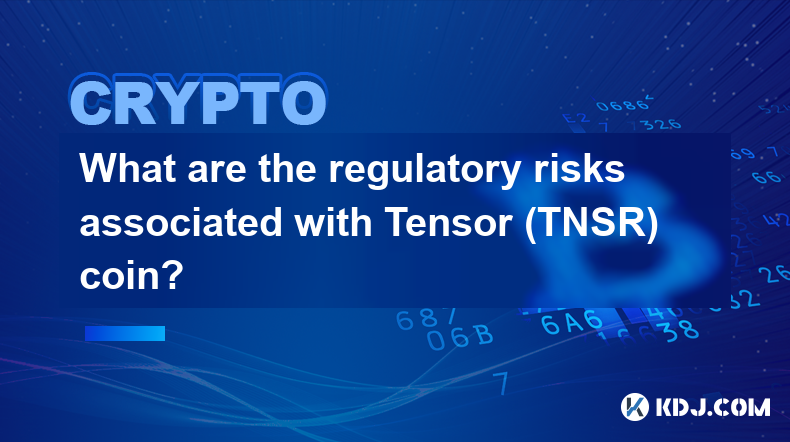-
 Bitcoin
Bitcoin $108,092.5658
-0.99% -
 Ethereum
Ethereum $2,546.4530
-1.12% -
 Tether USDt
Tether USDt $1.0000
0.01% -
 XRP
XRP $2.2676
0.12% -
 BNB
BNB $659.1616
-0.30% -
 Solana
Solana $148.8297
-1.97% -
 USDC
USDC $1.0000
0.02% -
 TRON
TRON $0.2874
-0.30% -
 Dogecoin
Dogecoin $0.1676
-3.64% -
 Cardano
Cardano $0.5765
-1.73% -
 Hyperliquid
Hyperliquid $37.2069
-6.18% -
 Bitcoin Cash
Bitcoin Cash $497.9918
-0.10% -
 Sui
Sui $2.8427
-2.26% -
 Chainlink
Chainlink $13.2689
-2.06% -
 UNUS SED LEO
UNUS SED LEO $9.0541
0.15% -
 Stellar
Stellar $0.2487
-0.92% -
 Avalanche
Avalanche $17.7710
-3.09% -
 Shiba Inu
Shiba Inu $0.0...01167
-1.28% -
 Toncoin
Toncoin $2.7488
-2.80% -
 Hedera
Hedera $0.1559
-2.28% -
 Litecoin
Litecoin $85.8945
-2.48% -
 Monero
Monero $316.0985
-2.09% -
 Dai
Dai $1.0001
0.02% -
 Polkadot
Polkadot $3.3481
-1.83% -
 Ethena USDe
Ethena USDe $1.0000
0.00% -
 Bitget Token
Bitget Token $4.2910
-3.04% -
 Uniswap
Uniswap $7.4131
-0.09% -
 Aave
Aave $280.9266
-2.67% -
 Pepe
Pepe $0.0...09816
-3.18% -
 Pi
Pi $0.4557
-2.29%
What are the regulatory risks associated with Tensor (TNSR) coin?
Jan 06, 2025 at 10:08 pm

Key Points:
- Understanding the decentralized nature of Tensor and its implications for regulation
- Examining the potential for categorization as a security
- Exploring the risks associated with token offerings and initial coin offerings (ICOs)
- Analyzing the impact of regulatory scrutiny on the value of TNSR
- Assessing the potential for criminal prosecution
- Evaluating the importance of compliance with anti-money laundering and know-your-customer regulations
- Discussing the role of exchanges and their adherence to regulatory frameworks
Regulatory Risks Associated with Tensor (TNSR) Coin
1. Decentralized Nature of Tensor and Regulatory Implications:
Tensor operates on a decentralized blockchain, which raises questions about the applicability of traditional regulatory frameworks. The absence of a central authority complicates oversight and enforcement, creating potential gaps in regulation. Governments may struggle to implement effective rules and regulations specific to decentralized cryptocurrencies like TNSR.
2. Categorization as a Security:
Regulators may scrutinize TNSR to determine whether it meets the criteria for classification as a security. Securities are financial instruments that represent an investment contract and are subject to strict regulations. If TNSR is deemed a security, it could fall under the jurisdiction of securities regulators, triggering additional compliance requirements and potential liability for issuers and exchanges.
3. Token Offerings and the Risks of Fraud and Exploitation:
The initial coin offering (ICO) phase of TNSR raises concerns about the potential for fraud and exploitation. ICOs present opportunities for illicit actors to launch fraudulent schemes, inflate token value, and manipulate investors. Regulators are actively investigating and prosecuting instances of ICO fraud, increasing the risk of legal action for participants involved in dubious TNSR token sales.
4. Impact of Regulatory Scrutiny on TNSR Value:
Heightened regulatory scrutiny can negatively impact the value of TNSR. Uncertainties surrounding the regulatory landscape and potential penalties can lead to decreased investor confidence and reduced market demand. Unfavorable regulatory decisions or enforcement actions can trigger significant price declines, resulting in financial losses for TNSR holders.
5. Criminal Prosecution and Personal Liability:
Individuals involved in TNSR transactions, such as founders, developers, and token purchasers, could face criminal prosecution if their activities violate existing laws. Regulatory agencies may pursue criminal charges for fraud, market manipulation, or money laundering offenses. Compliance with regulations is crucial to mitigate the risk of legal consequences.
6. Compliance with Anti-Money Laundering and Know-Your-Customer Regulations:
Regulatory frameworks require exchanges and financial institutions to implement anti-money laundering (AML) and know-your-customer (KYC) measures to combat illicit activities. TNSR is susceptible to these regulations, which mandate the collection and verification of customer information to prevent money laundering and terrorist financing. Exchanges and businesses that facilitate TNSR transactions must comply with these regulations to avoid legal penalties.
7. Role of Exchanges and their Adherence to Regulatory Frameworks:
Cryptocurrency exchanges play a pivotal role in regulating TNSR and other cryptocurrencies. Exchanges are frequently subject to government oversight and must adhere to regulatory requirements. By partnering with exchanges that prioritize compliance, TNSR can enhance its reputation and increase investor confidence. Exchanges that fail to meet regulatory standards could face sanctions, including fines or license suspension, impacting the availability of TNSR trading and reducing its liquidity.
FAQs:
Q: How do I ensure compliance with TNSR regulations?
A: Stay informed about regulatory developments, consult legal counsel, and prioritize partnerships with compliant exchanges.
Q: What are the consequences of violating TNSR regulations?
A: Consequences may include financial penalties, criminal prosecution, and reputational damage.
Q: How can I assess the credibility of a TNSR exchange?
A: Research the exchange's regulatory compliance, industry reputation, and security measures.
Q: How do regulations affect the future of TNSR?
A: Regulations can provide clarity and legitimacy, but also bring challenges and potential price volatility. Understanding the regulatory landscape is crucial for informed investment decisions.
Q: What are the potential benefits of regulatory oversight for TNSR?
A: Benefits include increased investor confidence, reduced risk of fraud, and increased adoption by financial institutions.
Clause de non-responsabilité:info@kdj.com
Les informations fournies ne constituent pas des conseils commerciaux. kdj.com n’assume aucune responsabilité pour les investissements effectués sur la base des informations fournies dans cet article. Les crypto-monnaies sont très volatiles et il est fortement recommandé d’investir avec prudence après une recherche approfondie!
Si vous pensez que le contenu utilisé sur ce site Web porte atteinte à vos droits d’auteur, veuillez nous contacter immédiatement (info@kdj.com) et nous le supprimerons dans les plus brefs délais.
-
 ICNT Échangez maintenant
ICNT Échangez maintenant$0.3182
30.31%
-
 M Échangez maintenant
M Échangez maintenant$0.2011
23.43%
-
 SOLO Échangez maintenant
SOLO Échangez maintenant$0.3788
17.55%
-
 HSK Échangez maintenant
HSK Échangez maintenant$0.7010
17.49%
-
 SHX Échangez maintenant
SHX Échangez maintenant$0.0116
15.42%
-
 COREUM Échangez maintenant
COREUM Échangez maintenant$0.1392
8.59%
- Coins meme, investissement précoce, croissance parabolique: attraper la vague
- 2025-07-08 22:30:12
- Crypto, institutions, BTC & ETH: A New Era Dawns
- 2025-07-08 22:30:12
- Bitcoin Solaris Market Launch: A New Dawn or Just Another Altcoin?
- 2025-07-08 20:30:12
- Bitcoin, Memecoin Mania, and the All-Time High Hunt: What's Next?
- 2025-07-08 20:30:12
- Byrq Coin: Scam or Savior? A Deep Dive Review
- 2025-07-08 20:50:12
- Shiba Inu's Burn Rate Bonanza: Can Crypto Burns Ignite a Price Rally?
- 2025-07-08 20:50:12
Connaissances connexes

How to customize USDT TRC20 mining fees? Flexible adjustment tutorial
Jun 13,2025 at 01:42am
<h3>Understanding USDT TRC20 Mining Fees</h3><p>Mining fees on the TRON (TRC20) network are essential for processing transactions. U...

USDT TRC20 transaction is stuck? Solution summary
Jun 14,2025 at 11:15pm
<h3>Understanding USDT TRC20 Transactions</h3><p>When users mention that a USDT TRC20 transaction is stuck, they typically refer to ...

How to cancel USDT TRC20 unconfirmed transactions? Operation guide
Jun 13,2025 at 11:01pm
<h3>Understanding USDT TRC20 Unconfirmed Transactions</h3><p>When dealing with USDT TRC20 transactions, it’s crucial to understand w...

How to check USDT TRC20 balance? Introduction to multiple query methods
Jun 21,2025 at 02:42am
<h3>Understanding USDT TRC20 and Its Importance</h3><p>USDT (Tether) is one of the most widely used stablecoins in the cryptocurrenc...

What to do if USDT TRC20 transfers are congested? Speed up trading skills
Jun 13,2025 at 09:56am
<h3>Understanding USDT TRC20 Transfer Congestion</h3><p>When transferring USDT TRC20, users may occasionally experience delays or co...

The relationship between USDT TRC20 and TRON chain: technical background analysis
Jun 12,2025 at 01:28pm
<h3>What is USDT TRC20?</h3><p>USDT TRC20 refers to the Tether (USDT) token issued on the TRON blockchain using the TRC-20 standard....

How to customize USDT TRC20 mining fees? Flexible adjustment tutorial
Jun 13,2025 at 01:42am
<h3>Understanding USDT TRC20 Mining Fees</h3><p>Mining fees on the TRON (TRC20) network are essential for processing transactions. U...

USDT TRC20 transaction is stuck? Solution summary
Jun 14,2025 at 11:15pm
<h3>Understanding USDT TRC20 Transactions</h3><p>When users mention that a USDT TRC20 transaction is stuck, they typically refer to ...

How to cancel USDT TRC20 unconfirmed transactions? Operation guide
Jun 13,2025 at 11:01pm
<h3>Understanding USDT TRC20 Unconfirmed Transactions</h3><p>When dealing with USDT TRC20 transactions, it’s crucial to understand w...

How to check USDT TRC20 balance? Introduction to multiple query methods
Jun 21,2025 at 02:42am
<h3>Understanding USDT TRC20 and Its Importance</h3><p>USDT (Tether) is one of the most widely used stablecoins in the cryptocurrenc...

What to do if USDT TRC20 transfers are congested? Speed up trading skills
Jun 13,2025 at 09:56am
<h3>Understanding USDT TRC20 Transfer Congestion</h3><p>When transferring USDT TRC20, users may occasionally experience delays or co...

The relationship between USDT TRC20 and TRON chain: technical background analysis
Jun 12,2025 at 01:28pm
<h3>What is USDT TRC20?</h3><p>USDT TRC20 refers to the Tether (USDT) token issued on the TRON blockchain using the TRC-20 standard....
Voir tous les articles

























































































